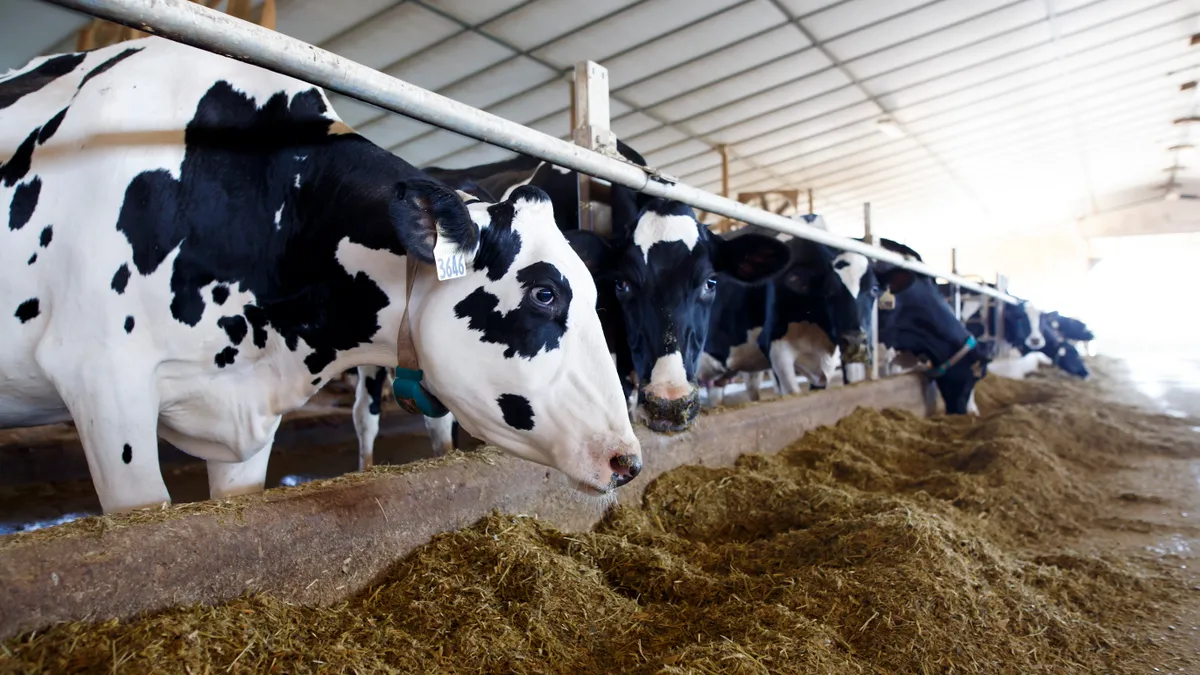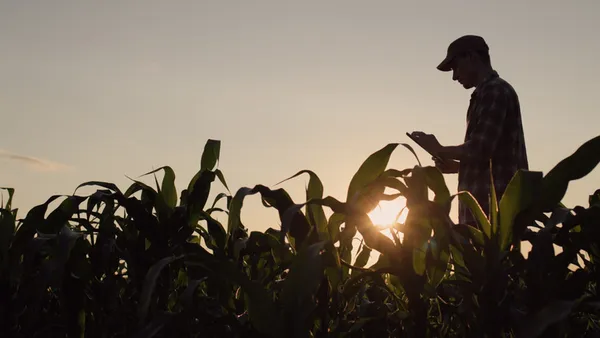Dive Brief:
-
California's landmark effort to reduce methane emissions in cow waste through anaerobic digestion may be less cost effective than policymakers and industry stakeholders have claimed, according to a new report from the Center for Food Safety.
-
The state's Dairy Digester Research and Development Program “costs up to 17 times more than what state and industry officials have claimed, producing a far lower return on investment,” the Washington D.C.-based nonprofit said in a news release. The report is based on an analysis conducted by Kevin Fingerman, associate professor in the environmental science and management department at Cal Poly Humboldt.
-
The report, which claims to be “the first comprehensive investigation of methane digester funding,” threatens to undermine an industry push to expand government incentives for anaerobic digestion.
Dive Insight:
California, often the country’s leader in environmental regulation, has invested roughly $200 million from 2015 to 2022 to expand dairy digestion. The state says such funding has resulted in a 25% reduction in methane emissions from dairies.
However, the real cost of digesters is debatable, according to the Center for Food Safety report. While state regulators claim dairy digesters cost $9 per ton of carbon dioxide abated, the true cost is $159 per ton when all public funding and market incentives are considered. That takes the state’s estimate of $195 million in total cost for 117 digester projects, up to $589 million for the projects.
"California's subsidize and incentivize approach to livestock methane is costly for taxpayers and lucrative for factory farm gas producers and investors," Phoebe Seaton, co-director of the Leadership Counsel for Justice and Accountability, said in a statement. "More alarming still, the profit incentives associated with producing factory farm gas in California entrenches and intensifies harmful farming practices."
A spokesperson for the California Department of Food and Agriculture said in a statement to Agriculture Dive that it could not immediately address cost concerns surfaced in the report without consulting the California Air Resources Board. However, the agency refuted claims that digesters accelerate industry consolidation or are more harmful to the environment than fossil fuels.
“Addressing climate change will require reducing emissions, sequestering carbon, and recycling existing carbon sources,” the spokesperson said in an email. “Dairy digesters create substitutes for fossil fuel by capturing methane and recycling it into a renewable fuel source for industries.”
The agency also noted that consolidation pre-dates the state’s dairy digester program, which first began issuing grants in 2015. California lost 512 dairy farms from 2007 to 2017, with experts attributing the decline to the pressures of urbanization and environmental regulations.
“The alternative to digesters is worse for the climate and communities surrounding dairies, particularly large dairies,” the spokesperson said in an email. “It is our responsibility to find ways to support dairies of all sizes in their efforts to be more sustainable.










